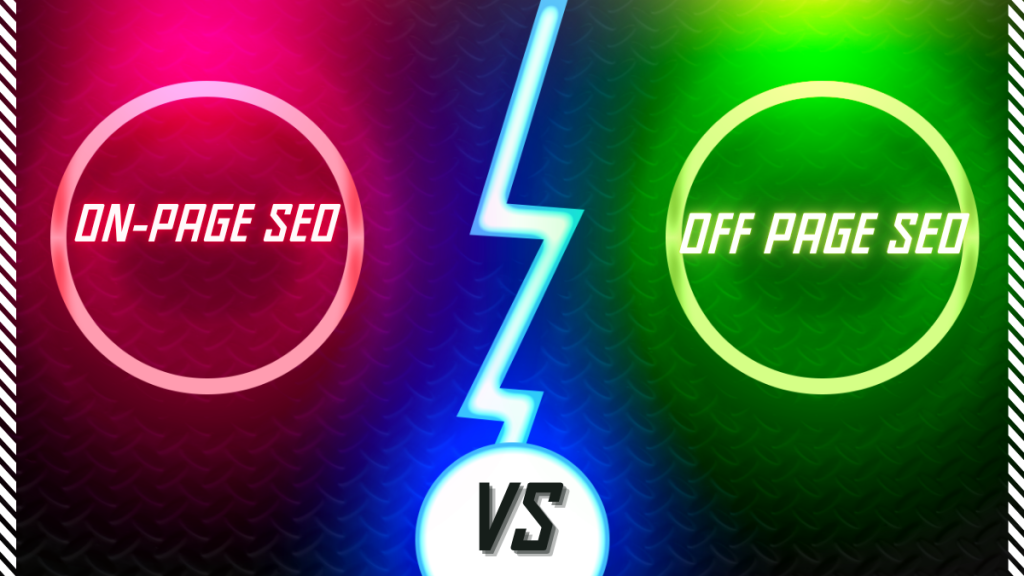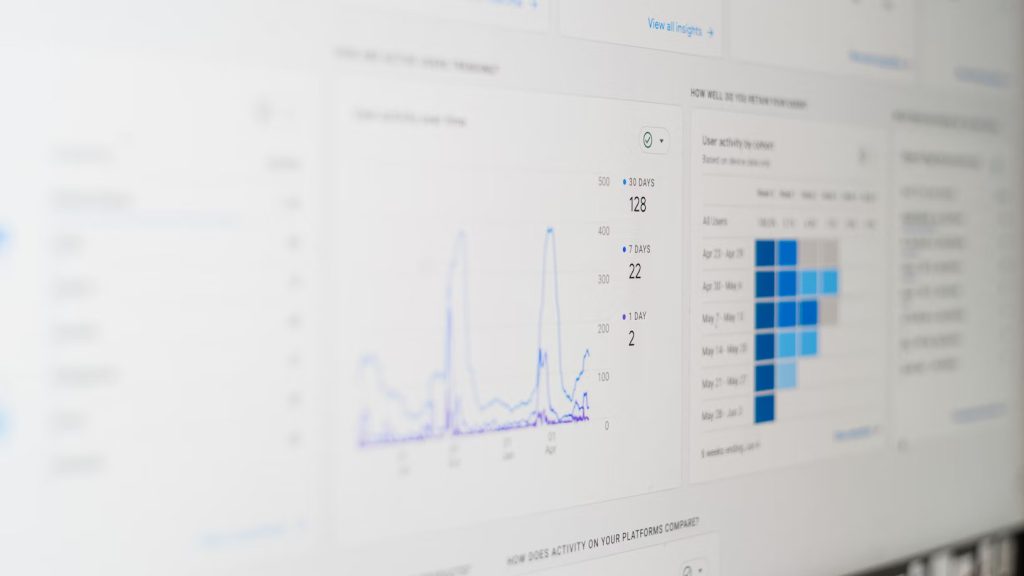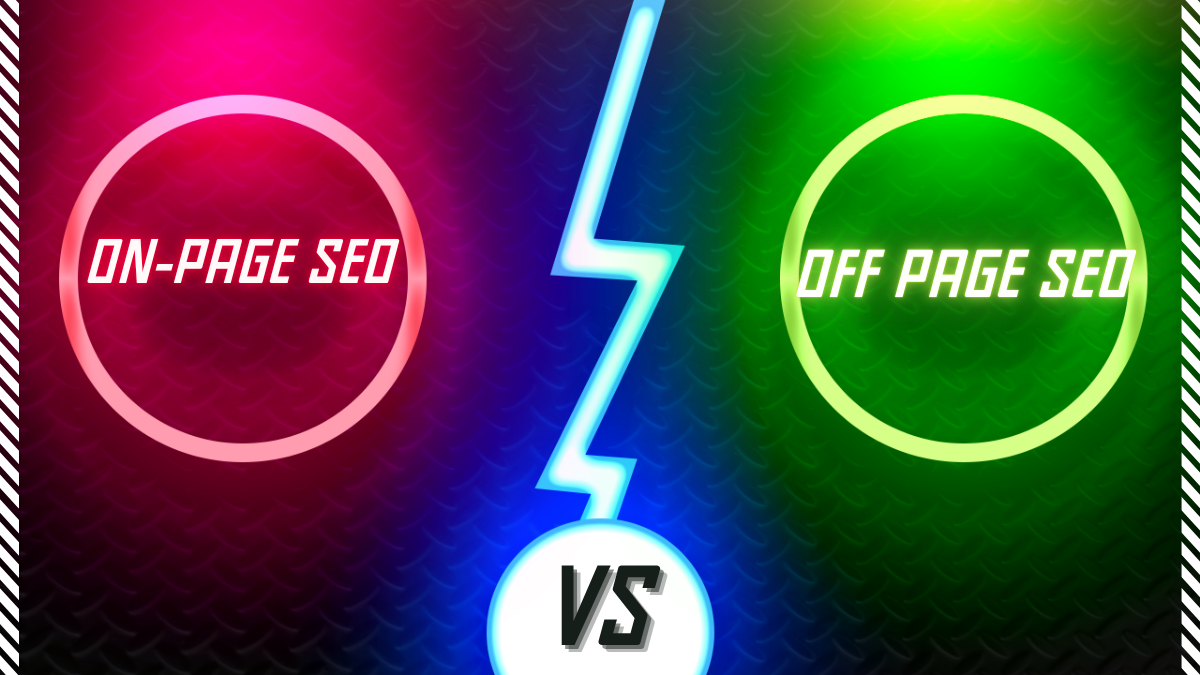SEO, SEO, SEO, everyone talks about SEO (Search Engine Optimization) and how its critical for any business trying to rank on Google. While SEO is a broad topic, just like in email marketing, there are different types of email copy, its easier to understand when broken down into two sections, on page and off page SEO. Understanding the difference between on-page and off-page SEO is critical to developing a detailed strategy. And that’s why in this guide, I’ll walk you through both these sections to help you understand what they mean, essential tips to get started, and more. By the end of it, you’ll think about doing your website’s SEO yourself than opt for SEO services.
So, let’s start!

Difference Between On-Page and Off-Page SEO
What is On-Page SEO

On-page SEO refers to the SEO done within a website, or a page. It includes core elements like optimizing content with relevant keywords, improving page load speed, ensuring the site has a user-friendly and intuitive structure, creating high-quality content, and using descriptive meta tags and titles.
If we talk about the difference between on-page and off-page SEO, while on-page SEO refers to the SEO efforts made within a website, off-page means all the activities that are performed outside the website to boost its search engine ranking.
Why is On-Page SEO Important
Many think off-page SEO is more important than on-page SEO. However, that’s untrue. On-page or on site SEO is equally as important as off-page or off site SEO. If you don’t know why is on-page SEO important, here’s what you need to know:
- On-page SEO improves a website’s rankings and traffic.
- With on-page SEO, you can improve the rankings and traffic of specific website pages by targeting specific keywords. This can potentially result in readers turning into subscribers and eventually, consumers.
- It makes your content stand out by providing valuable content to users and ranking well on search engines.
The Ultimate On-Page SEO checklist
Here is the ultimate on-page SEO checklist boost your website’s search engine rankings.
1- Keyword Research: Identify those terms and phrases that your target audience uses and use them in your content.
2- High-Quality Content: Write valuable, high-quality engaging content that exhibits E-E-A-T principles.
3- Excellent Keyword Placement: Naturally integrate your keywords in the content. Don’t overstuff.
4- Add Relevant Images: Use relevant images and optimize them for boosting user engagement.
5- Write a Concise, and Powerful Title: Make sure the title tag accurately reflects your content.
6- Use Relevant Headings: Don’t forget to use H2, H3, H4 headings in your content to structure it properly.
7- Relevant Meta Description: Craft a relevant and accurate meta description with the primary keyword in it.
8- Write a Short, Catchy URL: Ensure the URL is short, descriptive, and concise.
9- Add Links to Your Page: Add both internal and external links in the blog. You might have seen loads of them in our blogs too.
10- Mobile-Friendliness: Ensure your website is mobile-friendly, crawlable, and has social share buttons and a fast loading speed.
11- Update Existing Content: Update the existing content with new information to ensure its relevant and fresh.
What is Off-Page SEO? What is the Primary Purpose of Off-SEO?

Off-page SEO, as said, refers to all the optimizations that you do outside your website to improve its search engine rankings.
If you’re wondering what is the primary purpose of off-page SEO when both on-page and off-page SEO have the same goal; boost search engine rankings. Well, the core difference is in how they achieve this. Off-page SEO focuses primarily on building the website’s authority, reputation and credibility, and trustworthiness in search engines like Google and the broader internet (Bing, Yahoo, etc.). Off-page SEO efforts signal to the search engines that your website is a trusted, reputed, and valuable resource.
Now that you know what is the primary purpose of off-page SEO, let’s talk about how long does off-page SEO take and which is the best method of off-page SEO.
Off-page SEO is a long-term strategy, so it can take consistent and a long time. This is also where I’d like to point out to another difference between on-page and off-page SEO. While off-page is a long-term strategy and can take much longer, on-page SEO is a shorter term strategy and can take lesser time. Additionally, your off-page SEO efforts can take 3-6 months to show noticeable results, and 6-12 months or even longer for more significant impacts.
Off-Page SEO Checklist / the Best Method of Off-Page SEO
1- Link building
- Doing a backlink audit both for your current backlink profile and competitor backlink profile. Your own backlink audit with tools like Moz, Semrush, Google Search Console, and Ahrefs will help identify any low-quality links that might be harming your SEO.A competitor backlink profile audit will see who links to your competitor, what kind of content the backlinks link to, and then identify possible backlinking/link building opportunities.
- Getting high-quality backlinks by creating linkable assets such as valuable in-depth content guides, data-driven reports, etc., and finding broken links on other relevant websites and suggest your replacement for the broken link.
- See websites that are linking to your product or service but not have a link to it. Reach the site owner politely and request them to add a link.
- Guest blogging. This involves writing high-quality articles for other reputable websites in your industry to gain backlinks and expose your content to broader audiences.
- Resource page link building and digital PR and outreach.
2- Brand Building and Reputation Management
- Optimizing your Google Business Profile
- Actively encouraging and responding to customer online reviews
- Social media engagement
- Search for unlinked brand mentions on communities, forums, and Q&A sites and reach out to them to link to your website.
3- Republishing Existing Content and Writing Other Types of Content
- Republish existing high-quality content on other platforms
- Use press releases
- Share whitepapers, e-books, and presentations
- Submit images to infographic directories and videos related to your website to Vimeo and YouTube
4- Monitoring and Analysis
- Regularly monitor your backlinks
- Track brand mentions
- Analyze referral traffic
- Do a competitor analysis
Conclusion
Its clear that while on-page and off-page SEO are from the same main domain, i.e. SEO, the difference between on-page and off-page SEO cannot be ignored. While on-page refers to SEO efforts made within the website, off-page refers to efforts made outside the website. However, both have one aim, to boost search engine rankings.
FAQs
Is on-page SEO a one-time thing?
No, on-page SEO is not a one time thing. Its an ongoing process. Since search engines constantly update their algorithms, your content needs to be refresh and optimized accordingly.
Is local SEO on-page or off-page?
Local SEO has both on-page and off-page elements. On-page local SEO involves optimizing the website with NAP and local keywords, while off-page local SEO involves managing your Google Business Profile, online reviews, etc.
Is on-page SEO enough?
On-page SEO is essential but on-page SEO is not enough on its own. You need to use both on-page and off-page SEO for true results.
What is offsite and onsite SEO?
Offsite SEO is the same as off-page SEO and onsite SEO is the same as on-page SEO.
Is off-page SEO worth it?
Yes, off-page SEO is not only worth it but critical. It helps build your website’s reputation and credibility, which search engines value.

One thought on “What is the Difference Between On-Page and Off-Page SEO”